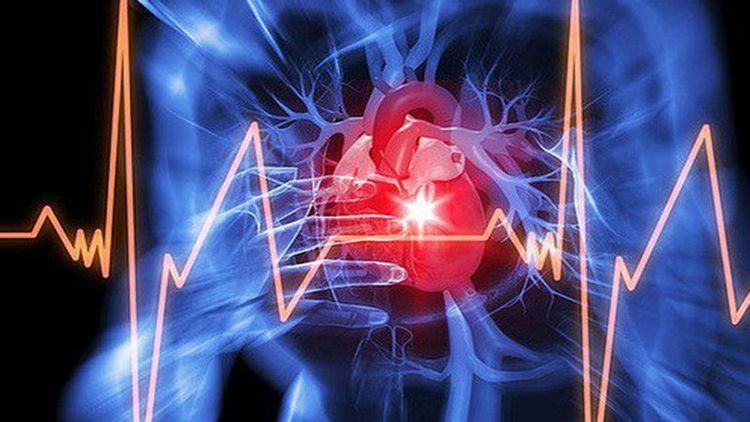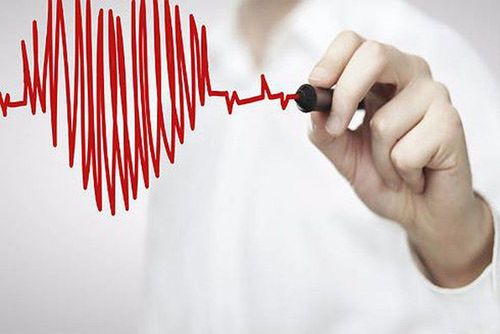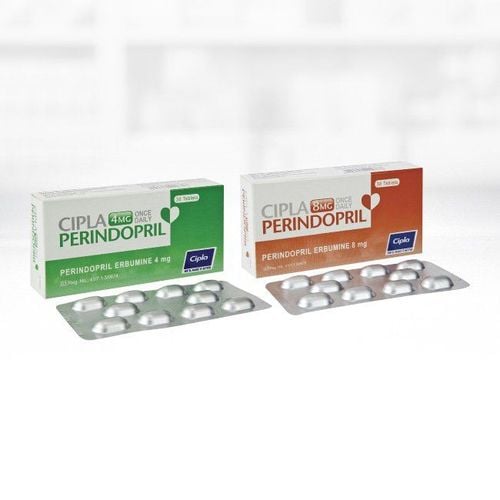This is an automatically translated article.
The article was consulted with Specialist Doctor I Huynh Kim Long - Emergency Resuscitation Doctor - Emergency Resuscitation Department - Vinmec Danang International General Hospital.Acute heart failure is a cardiovascular emergency that requires urgent and appropriate treatment. In which the treatment of acute heart failure has not improved with drugs, there are many new effective treatment methods for patients.
1. What is acute heart failure?
Heart failure is a condition in which the heart's function is reduced, the heart is not able to pump blood to the whole body. The disease presents with symptoms of pulmonary and systemic congestion with or without decreased cardiac output. Acute heart failure is an acute medical condition with sudden onset of signs and symptoms of heart failure that requires emergency or urgent intervention. Symptoms may be first-time onset or recurrent. Acute heart failure can occur without symptoms and signs of congestion and the patient presents only with decreased cardiac output and cardiogenic shock.2. Treatment goals for acute heart failure
Reduce symptoms and optimize fluid status Restore respiratory function, gas exchange and systemic oxygen Improve hemodynamics and target organ function Identify causes and predisposing factors for acute heart failure to treat according to Etiology Consider individual patient treatment with follow-up therapy such as noninvasive mechanical ventilation, ultrafiltration, percutaneous coronary intervention, mechanical circulatory support, myocardial resynchronization , heart transplantation Optimizing treatment of chronic heart failure when stabilized and before hospital discharge
3. Treatment of heart failure that has not improved with medication
Heart failure that has not improved with medication is a condition in which the patient does not respond to acute heart failure such as the disease does not improve, the disease is more serious and life-threatening requiring other measures. These measures include:Oxygen ventilation as soon as possible Non-invasive mechanical ventilation to reduce the possibility of mechanical ventilation through endotracheal tube in patients with acute pulmonary edema Indication for mechanical ventilation intubation: acute respiratory failure no improve or worsen despite all other measures. Red blood cell transfusion in patients with heart failure who cannot be compensated by increased cardiac output. Coronary revascularization and percutaneous aortic valve intervention to improve myocardial survival. Patients with acute heart failure in the setting of acute coronary syndrome requiring urgent percutaneous coronary intervention are at high risk for hemodynamic changes or cardiovascular collapse during intervention. Short-term and temporary mechanical circulatory support. Short-term mechanical circulatory support may be indicated early in the initial resuscitation and stabilization phase, and if acute decompensated heart failure is unresponsive (within 6–12 hours) or progresses, hypotension and persistent pulmonary congestion unresponsive to medication. Treatment of excess fluid unresponsive to diuretics by ultrafiltration alone is a non-pharmacological treatment that is being used extensively with the advantage of rapid fluid collection, avoiding a poorly adapted autoregulatory response due to diuresis. Avoid excreting too much Na. Maintenance of sinus rhythm and treatment of arrhythmias with an implantable device Shock cardioversion: It is necessary to conduct cardioversion as soon as atrial fibrillation does not respond to drug therapy, when hemodynamic changes are severe. : When atrial fibrillation has a rapid ventricular response that does not respond to drug therapy and electric shock, it is necessary to perform atrioventricular node ablation by high frequency radio waves combined with pacemaker placement to improve cardiac function. Pacing and resynchronizing therapy: In cases of bradycardia unresponsive to atropine or temporary intravenous pacing is indicated. If a permanent pacemaker is indicated, concurrent resynchronization should be considered. Resynchronization is indicated in heart failure patients with severely reduced EF, intraventricular conduction disturbances, and complete left bundle branch block.

Vinmec International General Hospital has a team of doctors and emergency nurses at the Emergency Department who are highly trained and methodical, able to receive and urgently handle severe cases. Continue to coordinate monitoring and treatment in the ICU with modern machines such as: PiCCO invasive hemodynamic detector, non-invasive ventilator, GE Carescape R860 ventilator... With basic system Modern medical equipment and facilities combine a team of cardiologists and thoracic specialists in medical treatment in combination with coronary intervention with a modern DSA system.
Please dial HOTLINE for more information or register for an appointment HERE. Download MyVinmec app to make appointments faster and to manage your bookings easily.














